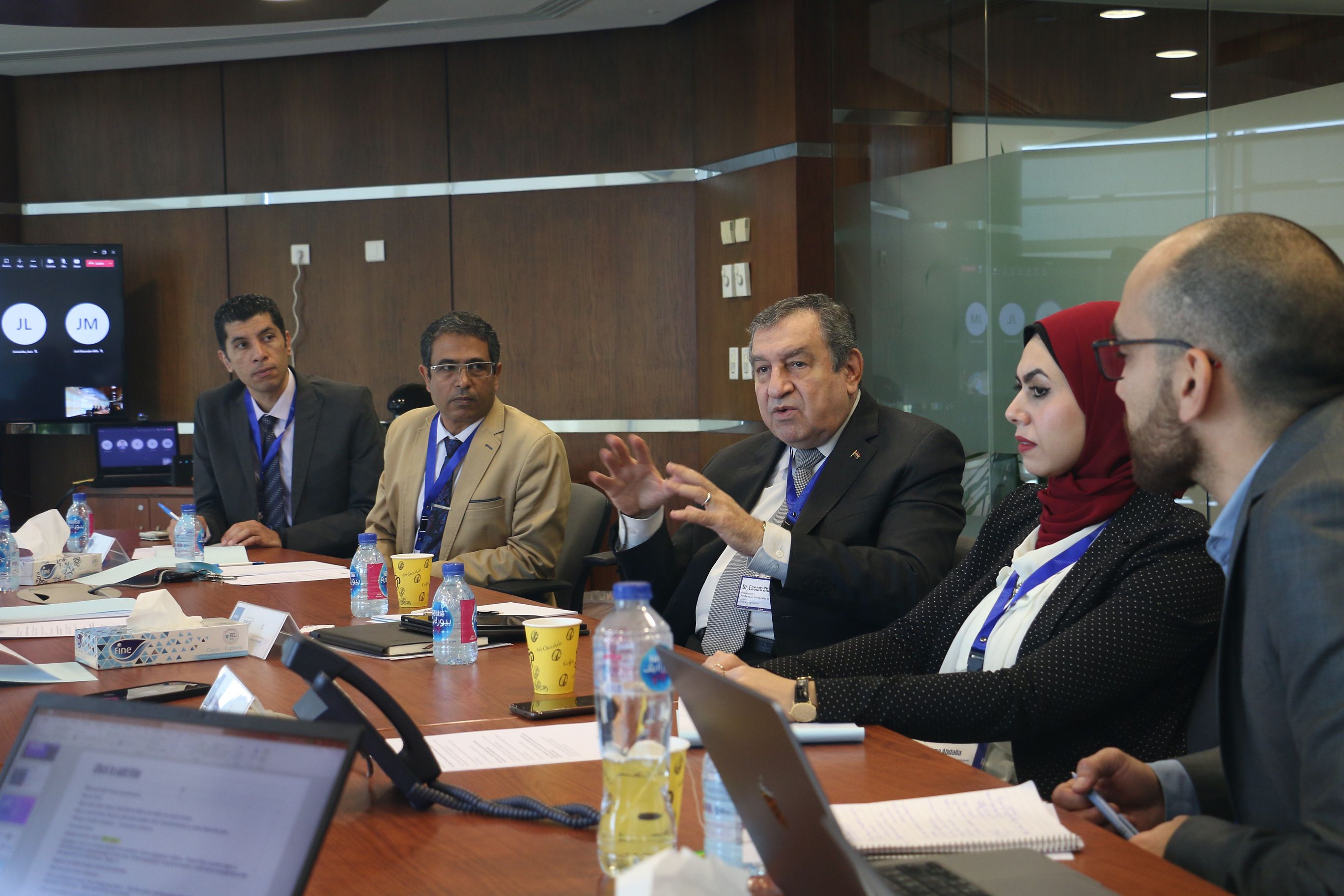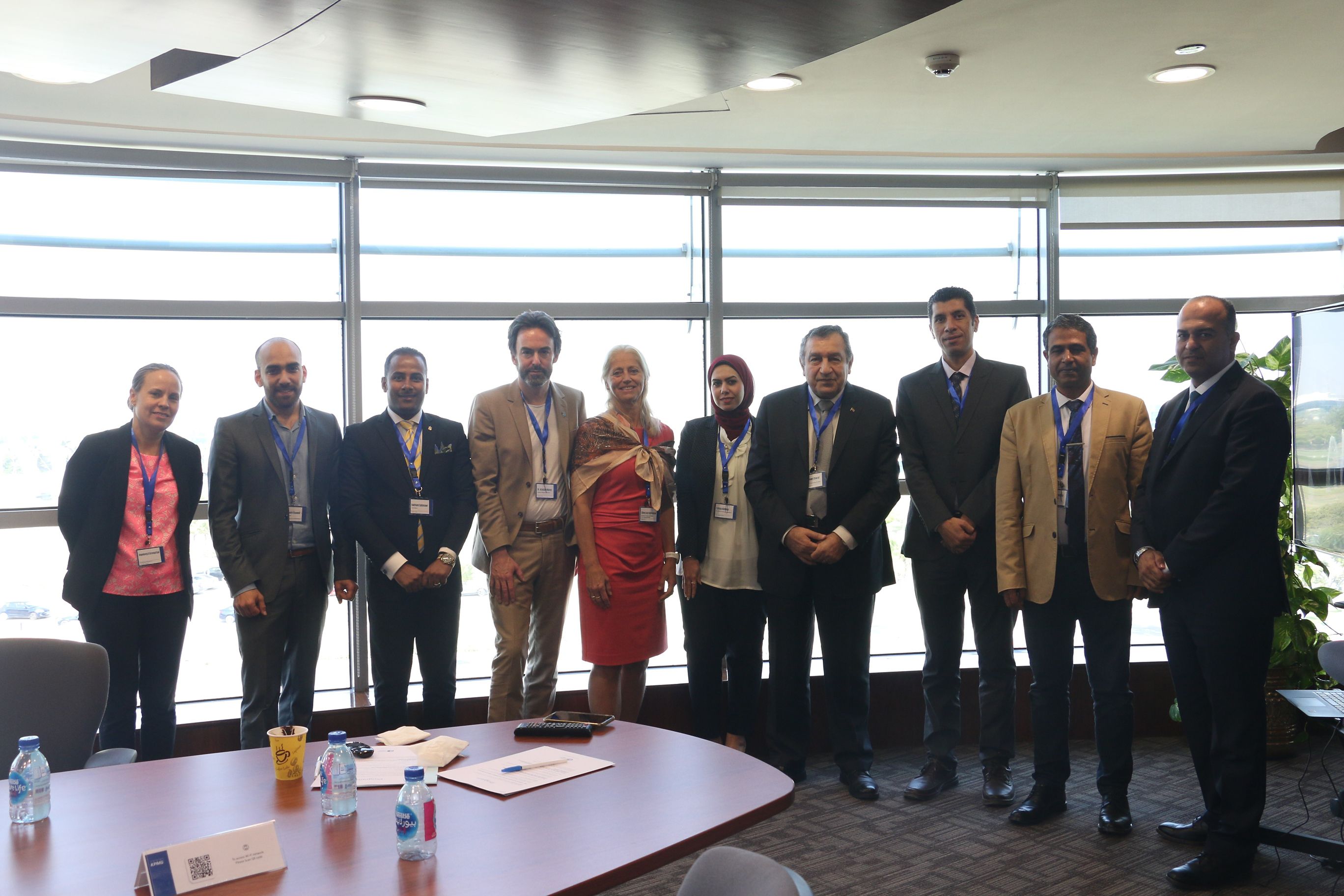In preparation for COP27, I was in Egypt and Lebanon, together with KPMG collaborator United Cities and colleagues from KPMG in Egypt. I had the pleasure of working with these fantastic people on challenging initiatives such as helping to improve mobility in municipalities in Egypt and ensure reliable electricity in municipalities around Beirut.
Nowadays, geopolitics and climate change are major concerns for the whole world. Many countries — and those in the business world — have pledged to reach net zero by 2050. While I’m not an expert in geopolitics, after 15 years working in the sustainability field, I know that pledges alone simply aren’t enough — meaningful action must be taken for net zero to become a reality. As the recent UN Emissions Gap Report 20221 indicates, we are not at all close to being on the right path. The report — which shows that urgent, system-wide transformation is the only way to avoid impending climate disaster — is alarming, to say the least.
The path to net zero is not straightforward. Even leaders within the sustainability field get their calculations on how to reach net zero by 2050 picked apart and criticized, while others get high fines for greenwashing their products or have to withdraw their ESG communications because there’s no evidence that backs up

what they are communicating externally. ESG ratings also get criticized and even referred to as scams.
In this debate, it is important to remember that reporting standards matter because they are a guide that lays out what to report on. They also help determine your risks and opportunities, and help businesses put effective ESG policies in place. But they do not tell the whole story of which companies are (or are not) working to make the world a better place. A company may have a complete ESG policy in place that it doesn’t follow through on, for example.
Data is key
Opinions vary on ESG processes and ratings on how to best reach net zero, but one thing is for sure: there needs to be accurate data to help make it happen. Demands from stakeholders for accurate and transparent information can push all industries to invest in better ESG data. There needs to be global ESG standards that compare apples to apples. With the work the International Sustainability Standards Board is doing and that of the European Green Deal and the Corporate Sustainability Reporting Directive, I am confident we will get there.
Value creation
Though ESG indicators and measurements based on facts and numbers show how businesses are progressing on the road to net zero, it is the actions behind the indicators — how ESG is embedded in business strategies — that can help lead to progress and create value.
ESG standards alone do not save the world and take us to net zero — people do. When people make ESG core in every business or investment strategy, and when it’s taken into consideration when boards and management make decisions on how and where to grow their business and where they have an impact in the future, that’s when value can be created.
I truly admire the brave CEOs, employees, entrepreneurs, politicians and NGOs challenging the status quo, incorporating ESG in all they do and actively working to get to net zero. I’m lucky to work with a lot of these fantastic people and hope to meet even more during COP27. Working together is one of the best chances to tackle climate change and help strengthen ESG practices.

You’re invited: The Net Zero Urban Program launch at COP27
On 9 November and 11 November, KPMG — together with United Cities — launches the Net Zero Urban Program at COP27. We invite those across all sectors to join us in bridging capital to build investable solutions, using technology and collaborations to make this a reality.
Sources
1. Emissions Gap Report 2022, UNEP, 27 October 2022
Related content
Contact us
Connect with us
- Find office locations kpmg.findOfficeLocations
- kpmg.emailUs
- Social media @ KPMG kpmg.socialMedia




